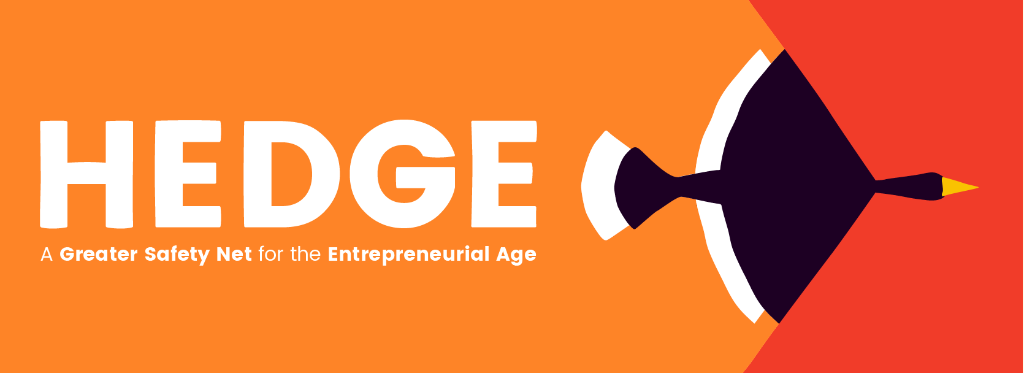
Dear all,
As software is eating the world, investors are developing an interest in tech companies as an asset class. Clear signals are coming from those who have the most capital to deploy, such as Goldman Sachs making inroads in venture capital, SoftBank deploying its $100B Vision Fund, mutual funds participating in venture rounds, and family offices investing directly in tech startups. This is good news for tech entrepreneurs, who can access larger amounts of capital. It also shows that the investment industry is going through a transition—one which is an opportunity for a firm like The Family.
If investing in businesses is an industry, then we can understand it in terms of a value chain. At the bottom are the entrepreneurs: as end customers, they are ready to pay in exchange for capital (in the form of interest, dividends or capital gains). At the top of the chain are the ones owning the resource that makes it possible for the entire industry to exist: capitalists.
The upstream link of the investment value chain is scattered about: most of the world’s capital is held by an infinite number of households, and so that link is difficult to operate at scale. Scattering also exists, although to a lesser extent, with the downstream link. Because businesses are so numerous and diverse, you need a great number of downstream players to deal with all those entrepreneurs seeking to access capital: credit unions, banks, brokerage firms, and private equity firms (including VC firms).
Like in every industry, the dispersion of both extremities of the value chain has led to investment being dominated by those operating in the middle: those asset managers whose business is taking large chunks of capital into their custody and then allocating it downstream to generate returns (and cashing in on lots of fees as they do so). However, the asset manager’s hold over the value chain is now in danger. Stronger players have emerged both upstream and downstream due to shifts in technology, regulations, and the global economy.
Upstream is now the realm of pension funds, mutual funds, and sovereign funds. As for downstream, it saw the emergence of ever-larger private equity firms (such as KKR and Blackstone), giant brokerages (such as Goldman Sachs) and hedge funds. Some players opted for vertical integration, such as is the case with retail banks or high-yield bond traders (whose business, following Michael Milken’s genius at generating network effects, is to orchestrate risky businesses investing in other risky businesses).
The latest wave of innovation is the one currently happening with software eating the world. Like in every industry, the needs of the end customers are no longer met by traditional players. For tech companies, the fastest-growing segment of the market, bank loans are inadequate because businesses are more prone to failure; public equity is inadequate because the barriers to entry for an IPO have become so high; and traditional private equity is inadequate because, as recently proved by Toys “R” Us, you can’t pay steady dividends and constantly reinvent your business at the same time.
What does this all say about the future of the investment industry? Mostly that upstream players (that is, institutional investors) are growing impatient with asset managers who still have their hold over the value chain. And so they are actively working on bypassing those managers to deploy capital where the returns are: in tech companies. Meanwhile, innovative downstream players, such as The Family, specialize in building strong relationships with the entrepreneurs most able to generate returns.
Traditional venture capital is ill-designed to ride the current wave of innovation. In most VC firms, the manner of investing reflects the old value chain, in which midstream asset managers (otherwise known as LPs) still call the shots. For VCs, raising money from LPs has long been a signal powerful enough to attract the best entrepreneurs...and the best deals!
But now the tide is shifting. Capital is superabundant and upstream players are asking tough questions regarding performance. There are other functions that VCs must learn to master if they want to do their job properly and secure the best deals: namely, the magical triangle of swag, content, and network.
Many VCs are now trying to diversify in those functions. But it’s hard for them to excel at a game that far from their core business of wooing LPs and hearing pitches while sitting behind their desks. Because they lack Paul Graham’s inspiring writing, Fred Wilson’s production discipline, or Ben Horowitz’s contagious passion for hip hop, most VCs end up delegating the magical triangle to underpaid interns instead of making it their core business.
This is the secret of a firm like The Family—a secret which, as often in entrepreneurship, is lying in plain sight. For us, swag, content, and network are considered strategic enough that they’re performed by the most senior members of the team. And once performing those functions has led to building relationships with the best entrepreneurs, we can grow from there, diversifying, expanding, and slowly integrating the assets, functions, and risks of a more traditional investment firm. It’s easier to move from swagging to deploying capital than it is the other way around, isn’t it 😘?
Stay tuned for more news as The Family is nearing its 5th birthday 🎈! Meanwhile here are a few readings on how the investment industry is undergoing radical change:
Unshackle the Middle Class (Scott Kupor, March 2013)
Where Is the "Funders Fund" for Venture Capital? (Ashby Monk, July 2014)
The Global Savings Glut (Dominic Rossi, May 2015)
A Brief History of the World (of Venture Capital) (me, May 2016)
Strategy in the Age of Superabundant Capital (Michael Mankins, Karen Harris & David Harding, March-April 2017)
11 Notes on Goldman Sachs (me, May 2017)
Mutual Funds As Venture Capitalists? Evidence from Unicorns (Yao Zeng, Sergey Chernenko & Josh Lerner, January 2018)
Entrepreneurs, Let’s Finance Businesses Better! (my colleague Younès Rharbaoui, February 2018)
Warm regards (from Normandy, France),
Nicolas


